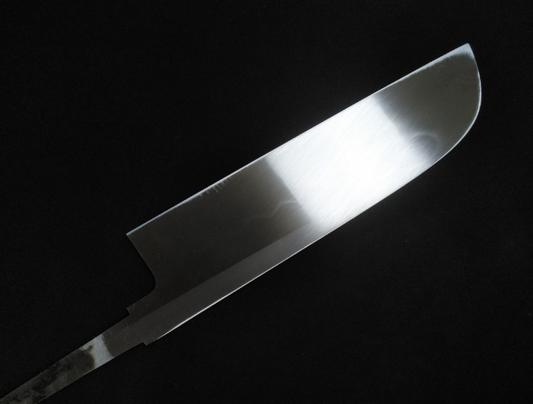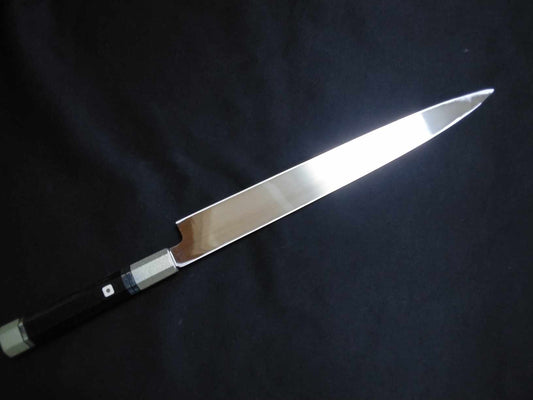
White Steel #2 (Honyaki-Aburayaki)
-
Quietly refined. Unshakably loyal.
Forged from ultra-pure White Steel #2 and gently tempered through oil quenching, this Honyaki knife blends the sharpness of tradition with a touch of resilience.
It cuts without fanfare—only with purpose.
Every slice reflects the purity of the steel, the instinct of the craftsman, and the discipline of the chef who holds it.
Built for those who seek not just performance, but a lifelong companion in the kitchen. -
White Steel #2 (Honyaki-Aburayaki) Japanese Knife Collection
-
White Steel #2 (Honyaki-Aburayaki) Kamausuba 225mm-Mirror Polished(one side)
Regular price $900.00 CADRegular priceUnit price / per$380.00 CADSale price $900.00 CADSold out -
White Steel #2 (Honyaki-Aburayaki) Yanagiba 300mm-Mirror Polished(both sides)
Regular price $1,500.00 CADRegular priceUnit price / per$1,500.00 CADSale price $1,500.00 CADSold out
KIREAJI's Three Promises to You
-

1. Forged in the Legacy of Sakai
From Sakai City—Japan’s renowned birthplace of professional kitchen knives—each blade is crafted by master artisans with over six centuries of tradition. Perfectly balanced, enduringly sharp, and exquisitely finished, every cut carries the soul of true craftsmanship.
-

2. Thoughtful Care for Everyday Use
Every knife includes a hand-fitted magnolia saya for safe storage. Upon request, we offer a complimentary Honbazuke final hand sharpening—giving you a precise, ready-to-use edge from day one.
-

3. A Partnership for a Lifetime
A KIREAJI knife is more than a tool—it is a lifelong companion. With our bespoke paid aftercare services, we preserve its edge and beauty, ensuring it remains as precise and dependable as the day it first met your hand.
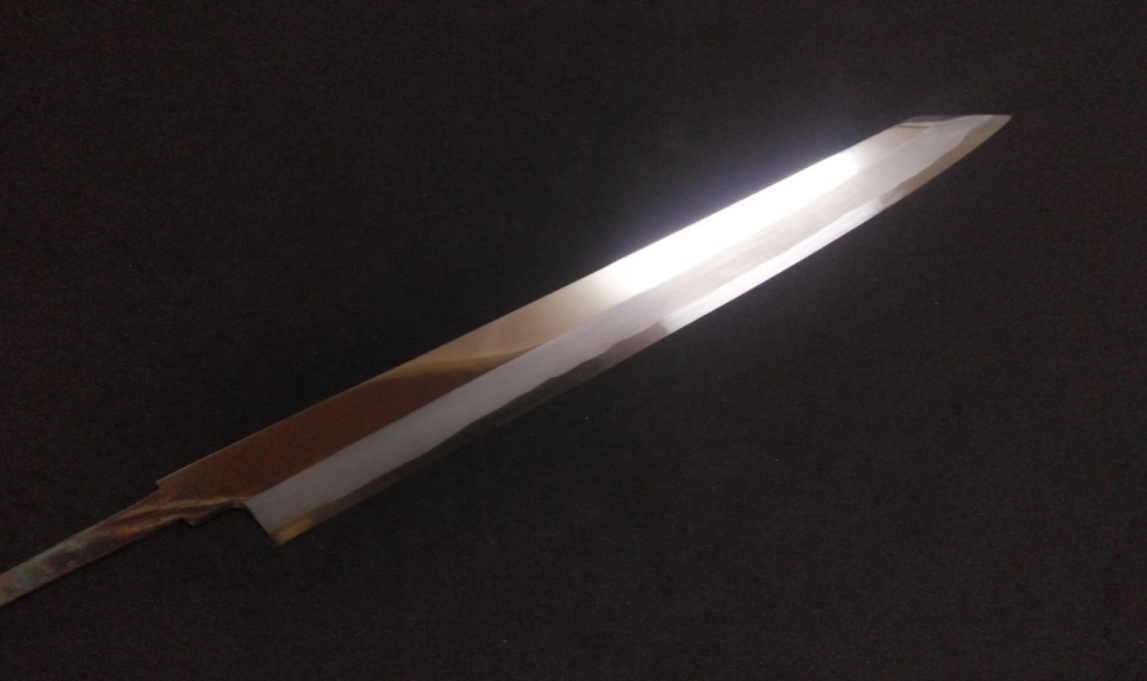
Why Many Product Photos Show Only the Blade
At KIREAJI, every knife is made to order in Sakai, Japan. Photos show the blade before the handle is attached, allowing artisans to perfect the balance and edge for your specific order. Your knife arrives fully finished — tailored just for you.

Global Delivery from Sakai
Across the world, discerning cooks seek authentic Japanese knives from Sakai — Japan’s legendary knife-making city with over 600 years of tradition.
At KIREAJI, we work alongside master artisans in Sakai to fulfill that desire, shipping genuine handcrafted knives directly from the workshop to kitchens worldwide.
White Steel #2 (Honyaki -Aburayaki) — Stability, Purity, and Everyday Trust
-
This is not just a knife — it is a commitment.
White Steel #2 (Shirogami #2) is a high-purity carbon steel with minimal alloying elements. In Honyaki construction, the blade is made from a single piece of steel and heat-treated traditionally; the oil quench (Aburayaki) is chosen to achieve performance with greater process stability and consistency than water quenching.
-

What White Steel #2 Brings
Because it has very few added alloys, White Steel #2 can take an extremely fine edge and is easier to sharpen than many highly alloyed stainless steels—while requiring attentive care against rust.
-
Why Honyaki -Aburayaki (Oil Quenching)
Oil quenching cools the blade more gradually than water, which helps reduce the risk of cracking and improves repeatability in production—key reasons master smiths may select it for mono-steel Honyaki. It aims for durable, dependable hardness with fewer catastrophic failures than water quenching.
-
The Sharpening Experience
White Steel #2 responds cleanly on whetstones. With appropriate angles and a calm stroke, you can feel the edge refine and raise sharpness efficiently; compared with high-carbide stainless steels, less aggressive abrasives are often sufficient. (Routine care against rust is essential.)
-

How It Performs
In use, the blade rewards steady technique with precise, low-effort cuts that preserve texture in fish, vegetables, and meat. The control feels deliberate rather than forceful—an everyday confidence that suits professional kitchens and serious home cooks alike.
-
Who Should Choose This Knife
- Cooks who value mono-steel tradition and stable, reliable heat-treat.
- Users who enjoy sharpening and routine maintenance.
- Professionals seeking a high-precision tool that tracks their technique closely.
-
Who Should Consider Other Options
- Users who want low-maintenance knives (consider stainless or laminated constructions).
- For heavy, rough tasks — such as working with bones or hard materials — consider a more rugged option.
-
White Steel #2. Honyaki -Aburayaki
More than sharpness—a blade that returns exactly what you put into it, day after day.
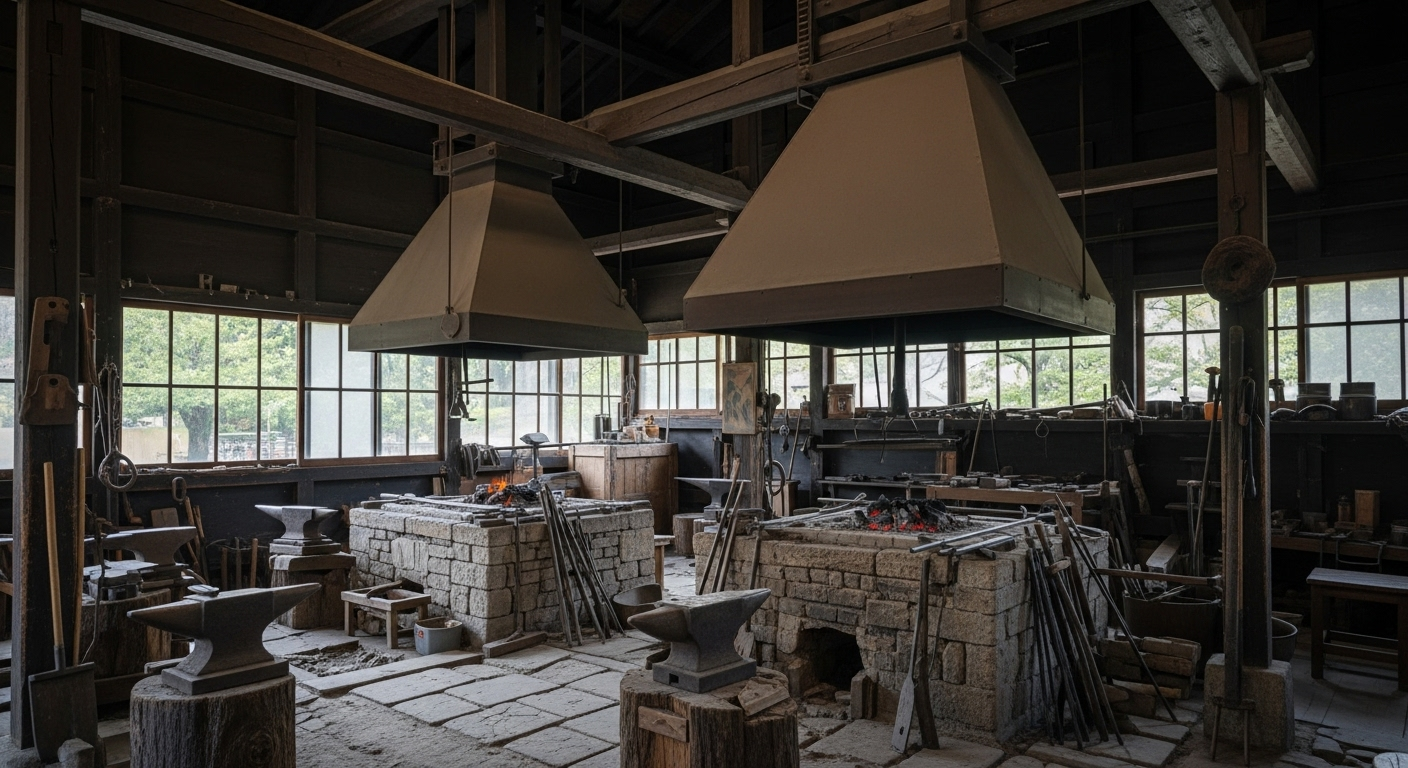
FAQ About White Steel #2 (Honyaki – Aburayaki)
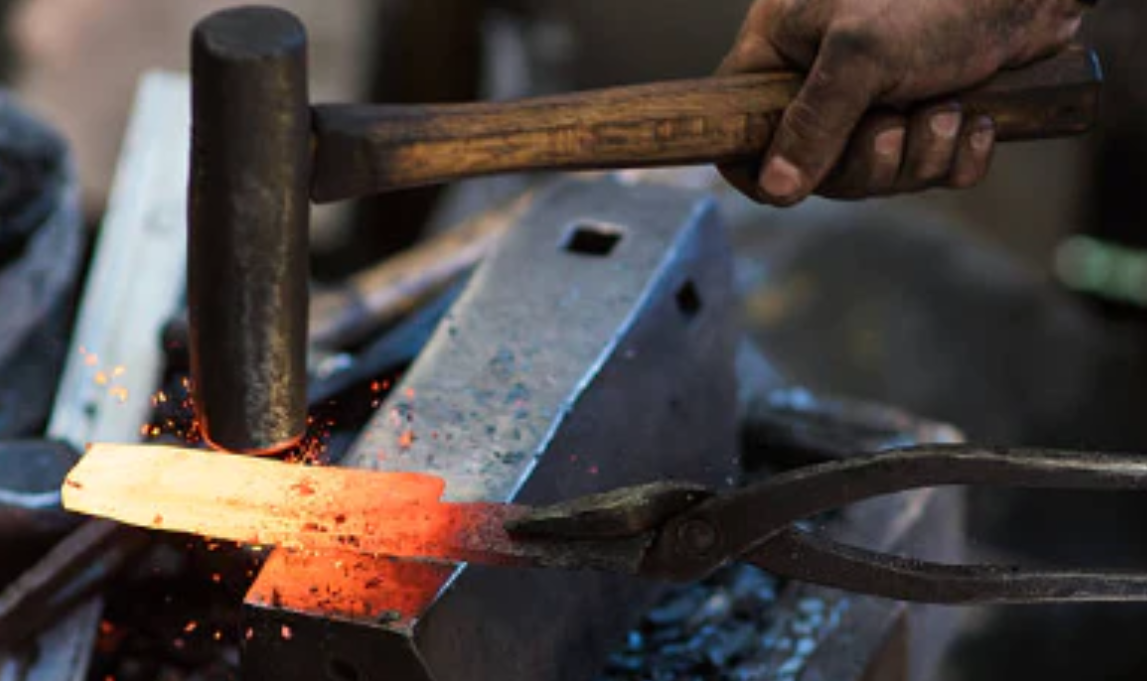
Q1. What is White Steel #2 (Aburayaki)?
White Steel #2, or Shirogami No.2, is a high-purity carbon steel celebrated for its unmatched sharpness and smooth sharpening feel. In the Aburayaki process, the blade is quenched in heated oil rather than water. This method enhances stability, wear resistance, and structural integrity, while still preserving the steel’s exceptional sharpness. The result is a blade more forgiving than Mizuyaki (water-quenching), yet one that still embodies the spirit of traditional Japanese craftsmanship.
Q2. Who should choose knives made from White Steel #2 (Aburayaki)?
Aburayaki knives are well-suited for professionals who need lasting sharpness with dependable durability, sharpening enthusiasts who enjoy refining their edge, and users seeking a more stable alternative to water-quenched Honyaki. They are ideal for those who respect their tools and are willing to maintain them properly.
Q3. What are the key characteristics?
White Steel #2 (Aburayaki) offers high hardness and strong edge retention, paired with a smooth and responsive sharpening feel. It is slightly more durable and forgiving than Mizuyaki blades, though still requires attentive care. Since it is not stainless steel, the blade must be thoroughly dried and oiled after use.
Q4. What are the pros and cons?
The advantages include an extremely sharp edge, precision performance, easier maintenance compared to Mizuyaki, and the ability to resharpen beautifully. The disadvantages are susceptibility to rust, sensitivity to moisture and acids, and the need for regular upkeep. With proper care, however, its benefits far outweigh its challenges.
Q5. How can I maintain it for long-term use?
To ensure longevity, rinse the knife immediately after use and avoid prolonged contact with moisture or acidic foods. Wipe it completely dry with a soft cloth, apply a thin coat of camellia oil or another protective oil, and store it in a dry, ventilated place. With these practices, an Aburayaki blade will not only last for decades but also deepen in character, rewarding the care you give it.
Q6. How is Aburayaki different from Mizuyaki?
The key difference lies in quenching. Mizuyaki uses water, which produces a blade of extreme sharpness but also high fragility, with a greater risk of warping or cracking during heat treatment. Aburayaki, by contrast, uses oil, which offers more stability, slightly greater toughness, and easier maintenance while still delivering excellent sharpness. In short, Mizuyaki is the ultimate test of a craftsman’s skill and yields unmatched purity, while Aburayaki provides a more balanced, reliable alternative.

The Current State of Honyaki Knives
Honyaki knives, forged one by one by master blacksmiths, are among the most prized and expensive Japanese blades. As global interest in fine cooking grows, these knives are drawing increasing attention from enthusiasts seeking authentic Japanese cuisine and precision in every cut.
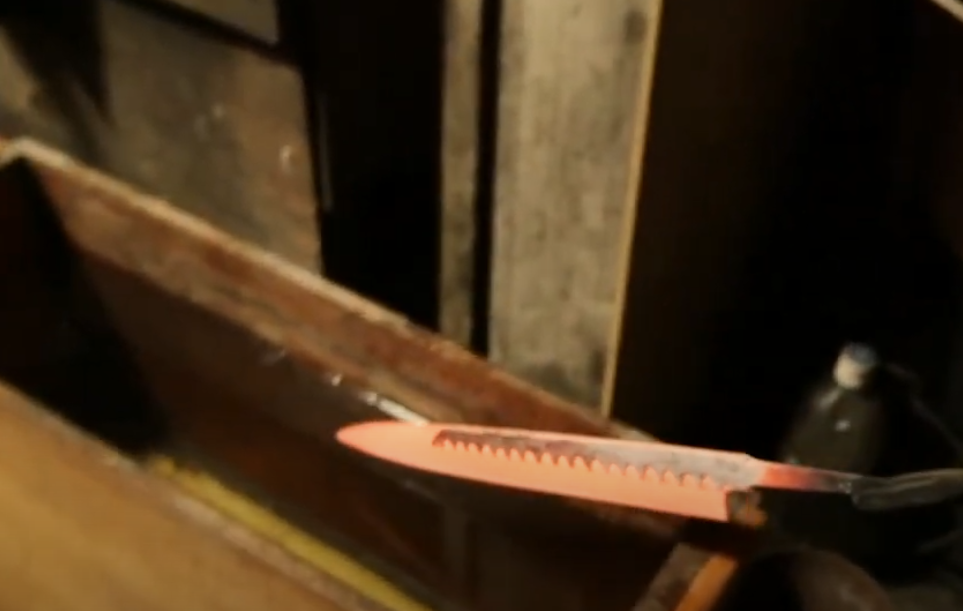
Mizuyaki vs Aburayaki
At the core of every Honyaki knife is a choice: Mizuyaki or Aburayaki. These two methods shape the blade’s character, performance, and beauty in distinct ways. Explore the world of true craftsmanship and see what sets them apart.

Japanese Knife Materials
The steel behind a Japanese knife defines its sharpness, durability, and care. From traditional carbon steels like White #2 and Blue #2 to modern innovations such as Ginsan and ZDP189, each material offers its own balance of performance and maintenance. This guide explores how these choices shape the knives we use today.
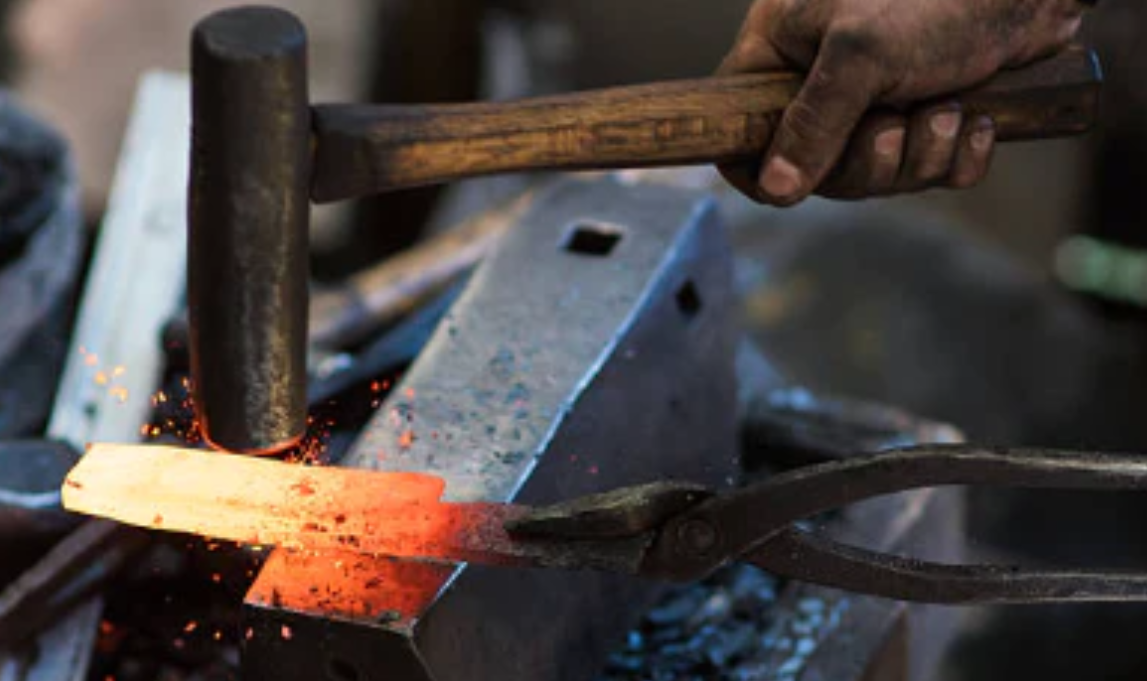
The Soul of Craftsmanship
-
The Art of Aburayaki — Breathing Life into Honyaki Knives
For us artisans who have devoted our lives to blade-making, using the aburayaki (oil-quenching) method for honyaki knives is far more than a technical choice. It is the inheritance of wisdom passed down through generations—a moment where we pour our spirit into every blade.
-
The beauty of oil quenching lies in its precision. Hardening is like a long journey, where every subtle adjustment of the flame decides the blade’s final character. By oil-quenching White Steel #2, we achieve a hardness that grants the knife a sharpness almost alive. The instant the steel meets oil, it transforms—gaining both strength and elegance, reaching its true potential
-
The knife born of this process is never just a tool. Once in the hands of a chef, it becomes a partner—standing by their side as they create culinary artistry, year after year. Each time such a knife is used, we craftsmen remember the flames, the sound, and the sight of steel dancing in the fire.
-
Aburayaki is not only a traditional technique but also a cultural heritage we are duty-bound to protect. It is the fruit of patience, care, and passion—not something achieved overnight. My hope is that when you encounter a White Steel #2 honyaki knife, it adds a new depth to your cooking, enriching not only your dishes but also your connection to the craft itself.
A single knife can change a life
-
Forged entirely by hand in Sakai, Japan, this blade carries the legacy of traditional Japanese sword-making, elevated by generations of craftsmanship, discipline, and pride.
With its unmatched sharpness, breathtaking beauty, and the spirit of absolute dedication, the Honyaki is more than a tool — it is the soul of the chef, a lifelong partner in the pursuit of mastery, trusted by professionals around the world. -


